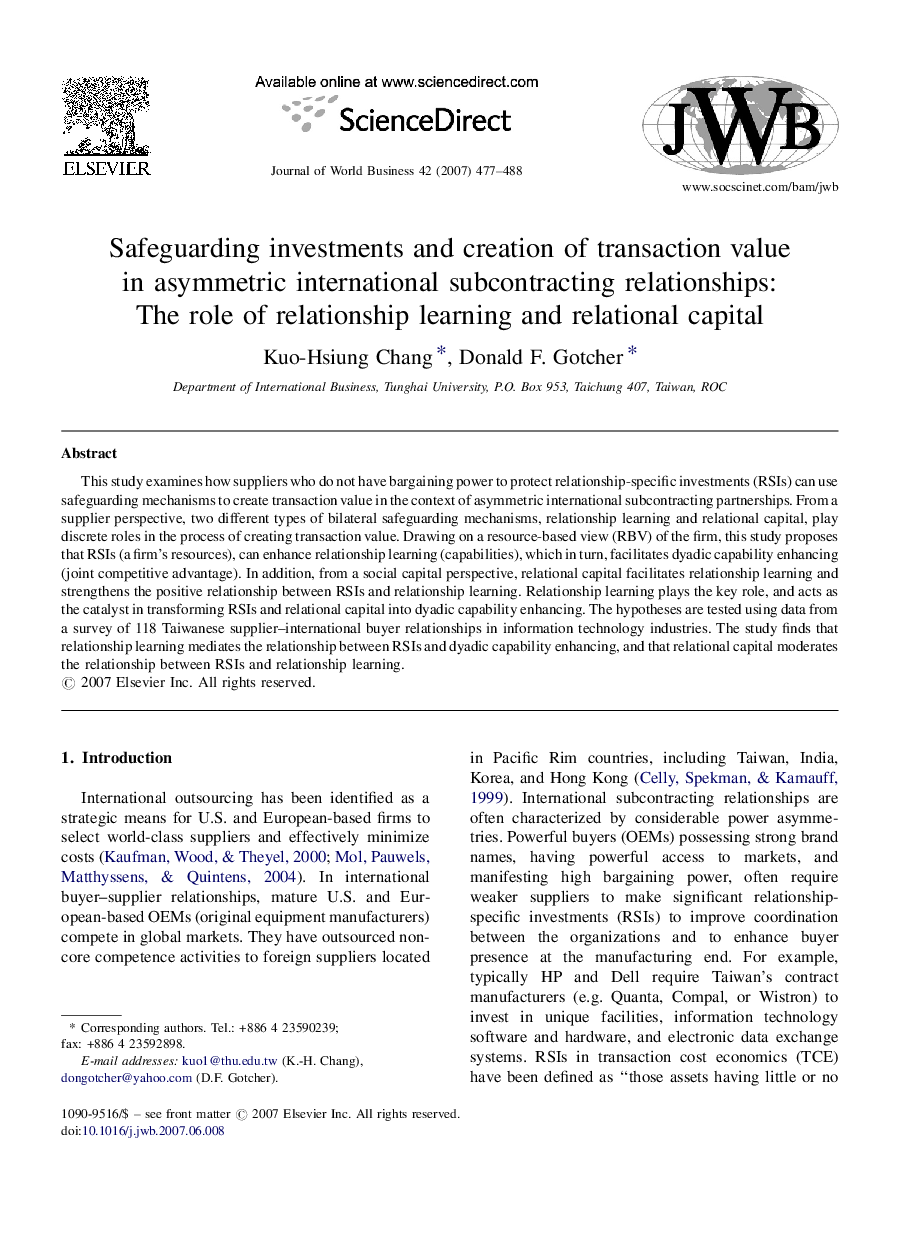| Article ID | Journal | Published Year | Pages | File Type |
|---|---|---|---|---|
| 1003410 | Journal of World Business | 2007 | 12 Pages |
This study examines how suppliers who do not have bargaining power to protect relationship-specific investments (RSIs) can use safeguarding mechanisms to create transaction value in the context of asymmetric international subcontracting partnerships. From a supplier perspective, two different types of bilateral safeguarding mechanisms, relationship learning and relational capital, play discrete roles in the process of creating transaction value. Drawing on a resource-based view (RBV) of the firm, this study proposes that RSIs (a firm's resources), can enhance relationship learning (capabilities), which in turn, facilitates dyadic capability enhancing (joint competitive advantage). In addition, from a social capital perspective, relational capital facilitates relationship learning and strengthens the positive relationship between RSIs and relationship learning. Relationship learning plays the key role, and acts as the catalyst in transforming RSIs and relational capital into dyadic capability enhancing. The hypotheses are tested using data from a survey of 118 Taiwanese supplier–international buyer relationships in information technology industries. The study finds that relationship learning mediates the relationship between RSIs and dyadic capability enhancing, and that relational capital moderates the relationship between RSIs and relationship learning.
